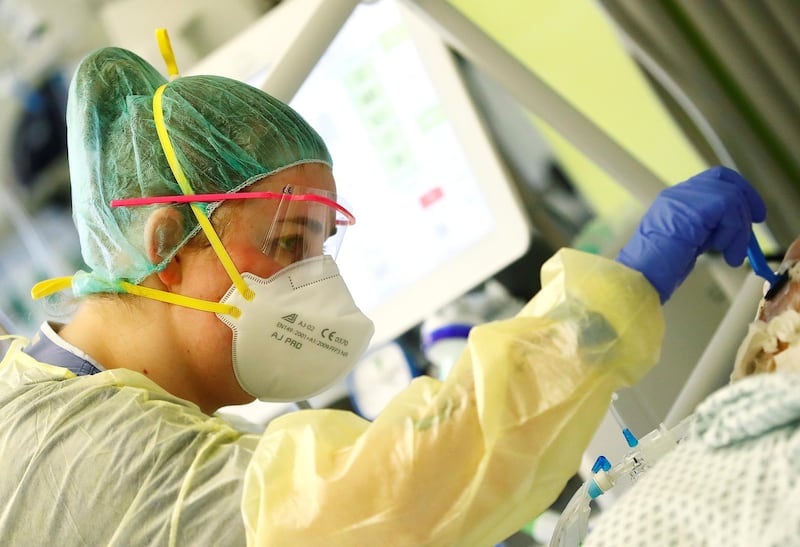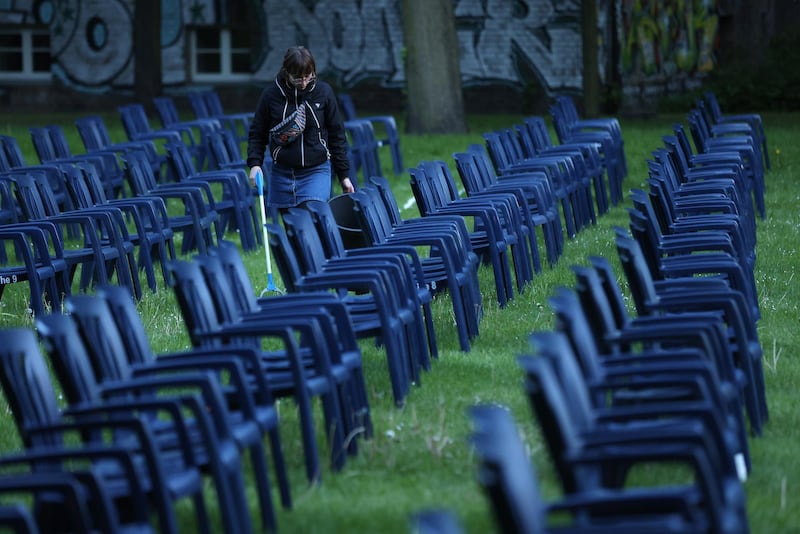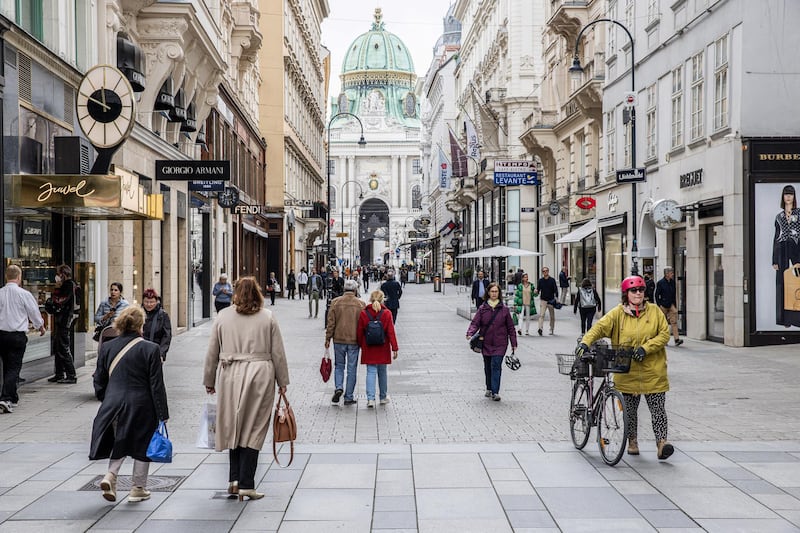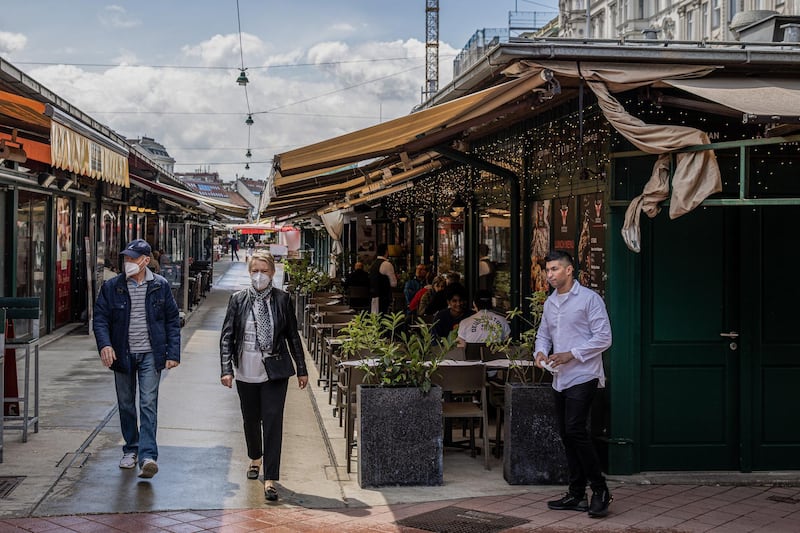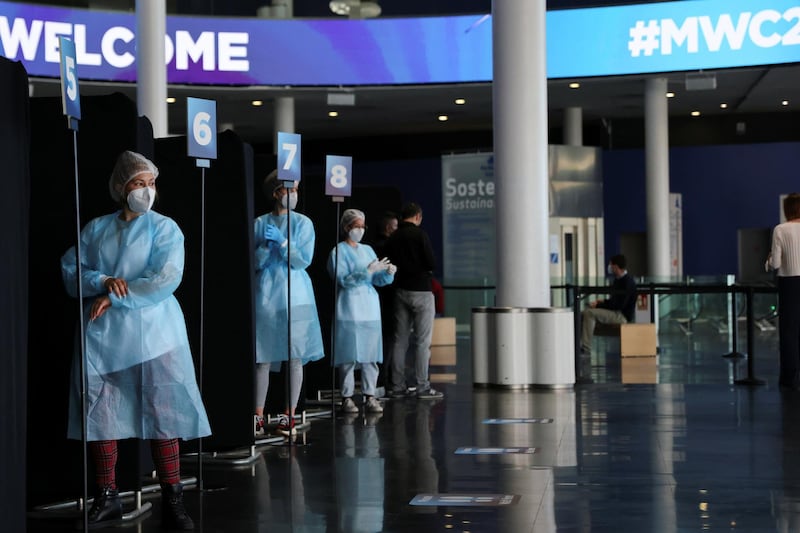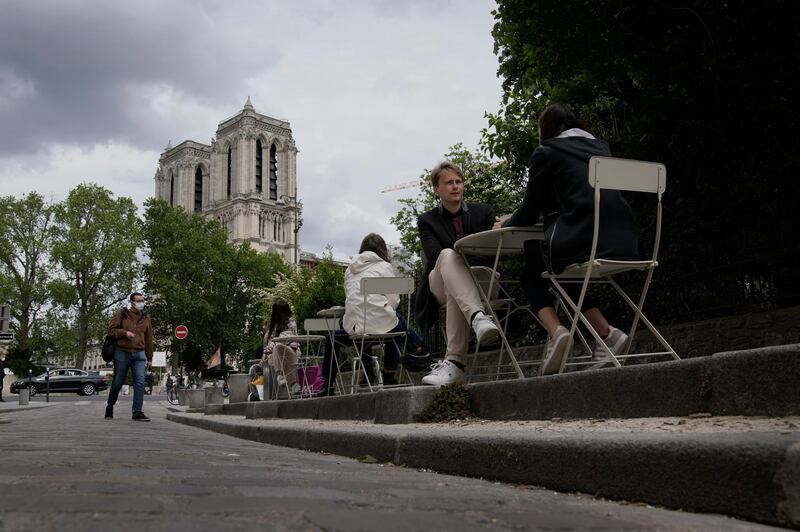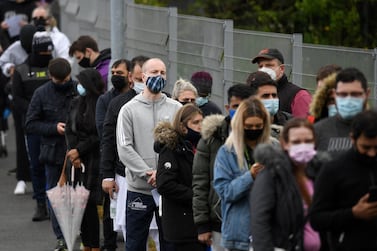Germany is banning travellers from the UK from entering the country, due to concerns about a coronavirus variant first found in India.
On Friday, Germany's public health institute declared the UK a "virus variant region", as Covid-19 cases from the B.1.617 strain continue to climb in Britain.
From Sunday, a temporary ban will be imposed on most travellers from the UK.
Only German citizens and people with German residency permits will be permitted to enter the country, and they must quarantine at home for two weeks afterwards.
Travellers transferring from one flight to another and who remain in the airport transit area are also exempt from the ban.
"We want to play it safe," a German government source said. "In this important phase of the vaccination campaign, the entry of problematic mutations must be avoided as far as possible."
Other countries which also face restricted travel include India itself and Brazil, but no other European countries.
Chancellor Angela Merkel expressed concern about the variant "which seems to be somewhat more aggressive" than the currently dominant variant.
Ms Merkel also urged Germans to behave responsibly as large parts of the country relaxed more pandemic restrictions Friday.
German regions have gradually started easing restrictions as new coronavirus cases decline steadily, accompanied by an accelerating vaccination campaign.
Cafes and restaurants in Berlin and elsewhere started serving customers outdoors for the first time in months on Friday – provided they present a negative Covid-19 test or a vaccination certificate.
By Friday, most of Germany’s 400 cities and counties had a weekly case number below the threshold of 100 per 100,000 inhabitants that triggered strict lockdown measures.
But top officials stressed the need to remain vigilant.

"We can be glad that [infection rates] have declined so far in recent days and in the last two weeks that we can think about opening steps," Ms Merkel told reporters in Berlin.
“I hope that, after the long time with closures and opportunities they didn’t have, that people will treat these opportunities very responsibly,” she added.
“The virus has not disappeared.”
Germany's disease control agency reported 8,769 newly confirmed Covid-19 cases Thursday and 226 deaths. The country has reported 87,128 virus-related deaths since the start of the pandemic.
State authorities have pushed vigorously to reopen hospitality and tourism for the three-day long weekend, despite misgivings from federal officials.
Ms Merkel said continuing to wear masks and observe social distancing is essential. “We must take care,” she said.
"I believe that, with the necessary responsibility and care that hopefully many – most people – will take, we won't have to talk about having to shut down again."
About 40 per cent of the population in Germany has received at least one dose of Covd-19 vaccine so far. About one in eight – more than 10 million people – have been fully vaccinated.


